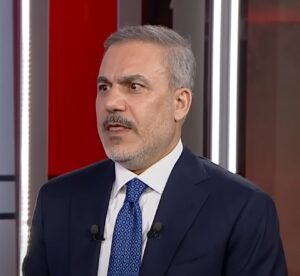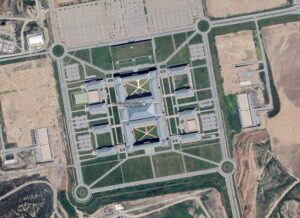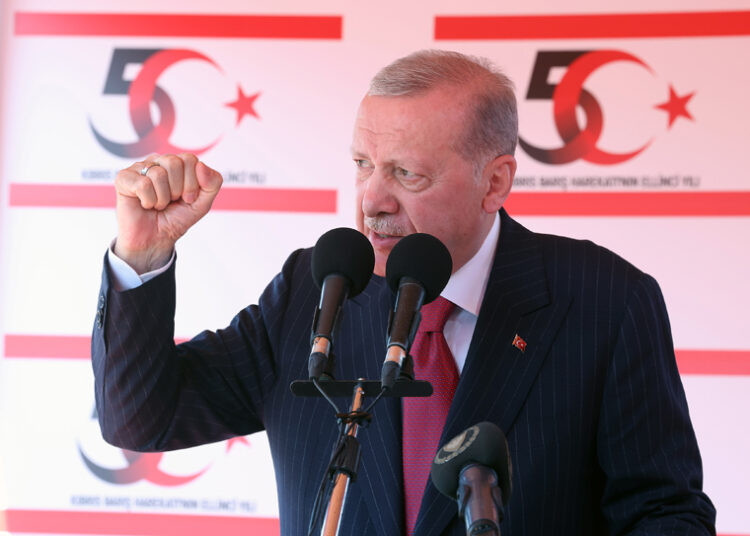Abdullah Bozkurt/Stockholm
The notorious Turkish intelligence service, Milli İstihbarat Teşkilatı (MIT), long regarded as a loyal enforcer of President Recep Tayyip Erdogan’s increasingly authoritarian regime, has undergone a sweeping internal restructuring.
This transformation underscores MIT’s evolution from a traditional intelligence service into a key instrument for both domestic repression and aggressive foreign influence campaigns, Nordic Monitor has learned.
The restructuring emphasizes expanded foreign espionage capabilities and intensified domestic surveillance operations, pointing to MIT’s elevated role as a central pillar of Erdogan’s political Islamist governance model. Under Erdogan’s leadership, the agency has become highly politicized, operating with total impunity and functioning as a shadow extension of state power to advance partisan objectives both at home and abroad.
At the core of MIT’s structural overhaul is the Foreign Operations Directorate (Dış Operasyonlar Başkanlığı), which has been granted expanded authority to carry out clandestine operations abroad in pursuit of President Erdogan’s geopolitical and ideological objectives. Its wide-ranging mandate encompasses covert surveillance, false-flag operations, sabotage, intimidation of dissidents, infiltration, cyberwarfare, disinformation campaigns and even extrajudicial actions such as abductions and targeted assassinations.
MIT agents no longer operate solely within the confines of Turkish diplomatic missions. In many countries — particularly across Europe, where sizable Turkish diaspora communities are present — the agency has established covert outposts under the guise of journalism, academic institutions, business enterprises, charities and civil society initiatives. These clandestine networks serve not only to monitor critics and dissidents of the Erdogan regime but also to manipulate public opinion and influence policymaking in host nations.

The agency has also been empowered to cultivate proxy groups, often embedded within Turkish and broader Muslim communities, that can be mobilized to advance Ankara’s foreign policy agenda. These proxies are sometimes linked to organized crime, as MIT has collaborated with transnational criminal networks including mafia organizations, smuggling rings and drug traffickers to obscure its operational footprint and maintain plausible deniability.
Perhaps most alarmingly, MIT’s extraterritorial operations include the abduction and forced repatriation of Erdogan’s opponents living abroad. These covert renditions have primarily targeted members of the Gülen movement, a dissident group vilified by the Erdogan government for its legitimate opposition. Erdogan has publicly praised MIT’s global manhunts, openly admitted to the regime’s transnational repression and boasted about the agency’s ability to carry out abductions with impunity.
Domestically, MIT’s transformation is equally alarming. The establishment of the Security Investigations Directorate (Güvenlik Tahkikat Başkanlığı) has institutionalized ideological vetting for all public sector appointments. Its mandate is to ensure that only individuals loyal to Erdogan’s ruling Justice and Development Party (AKP) or its ultranationalist coalition partner, the Nationalist Movement Party (MHP), are permitted to enter government service.
MIT played a central role in the unprecedented mass purges of 2015–2017, during which approximately 130,000 civil servants including judges, prosecutors and police chiefs as well as more than 24,000 members of the military were arbitrarily and summarily dismissed. These purges were driven by the agency’s profiling of individuals based on political and religious beliefs deemed incompatible with Erdogan’s divisive and polarizing agenda.

This ideological vetting is now systematically applied to all applicants for positions within the judiciary, military, police and other key state institutions.
The politicization of the agency is evident in its top leadership. Both the current intelligence chief, İbrahim Kalın, and his predecessor, Hakan Fidan, were handpicked by Erdogan despite lacking conventional intelligence backgrounds and expertise in the intelligence field. Their appointments reflect a broader trend in which loyalty to Erdogan and alignment with his Islamist-nationalist ideology take precedence over professional qualifications or experience
Another key component of MIT’s revamped structure is the Cyber Intelligence Directorate (Siber İstihbarat Başkanlığı), which plays a central role in psychological warfare and information manipulation.
The directorate has been instrumental in shaping public narratives to compensate for the Erdogan government’s colossal failures, ranging from inadequate responses to natural disasters to foreign policy blunders and domestic scandals that would, under normal democratic conditions, bring down any government.
Its tactics include distorting facts, creating distractions and informational noise to undermine the truth, and disseminating disinformation, half-truths and outright lies, often amplified through troll farms, bot networks and coordinated media campaigns.
Working in tandem with Erdogan-aligned prosecutors and media outlets, MIT has orchestrated disinformation campaigns to construct fabricated criminal cases, often on terrorism charges that carry severe penalties, against journalists, political opponents and civil society figures. These state-manufactured narratives are embedded in politically motivated indictments, echoed across Turkish state-controlled media and amplified by a network of social media accounts tasked with disseminating government-sanctioned talking points.
The Cyber Intelligence Directorate has also begun exporting its operations abroad. In recent years it has established shell companies in foreign countries to conceal its involvement in disinformation campaigns conducted in multiple languages, targeting foreign audiences and policymakers.
Legal and institutional safeguards that might normally check the power of a spy agency have been systematically dismantled. Through a series of legislative amendments pushed through parliament by Erdogan’s ruling party, MIT has been granted full immunity from prosecution. No investigation can be launched into the agency or its operatives without the direct approval of the president.

Parliamentary oversight exists only on paper. The agency’s budget, now significantly increased, escapes public scrutiny. Journalists who investigate MIT’s illegal activities or expose its operatives who were involved in unlawful conduct face harsh penalties, often including long prison sentences under counterterrorism or espionage laws. Political opposition parties largely avoid criticizing the agency out of fear of retaliation, whether through smear campaigns, fabricated charges or damaging leaks.
The immense power accumulated by MIT, coupled with its unchecked authority to conduct clandestine operations without oversight, has fostered a climate of fear and impunity in Turkey, leaving citizens with no effective means of redress or accountability.
MIT’s dramatic transformation over the past decade reflects Turkey’s accelerating slide into authoritarianism under Erdogan. The agency’s traditional intelligence functions have been subordinated to political imperatives. It now serves as an enforcement arm of the regime, weaponized to safeguard Erdogan’s rule, suppress dissent, crack down on rights and freedoms and project power abroad.
As long as MIT remains shielded from accountability and continues to operate in the service of Erdogan’s personal and political agenda, the rule of law, democratic governance and fundamental human rights in Turkey will remain in grave peril.












